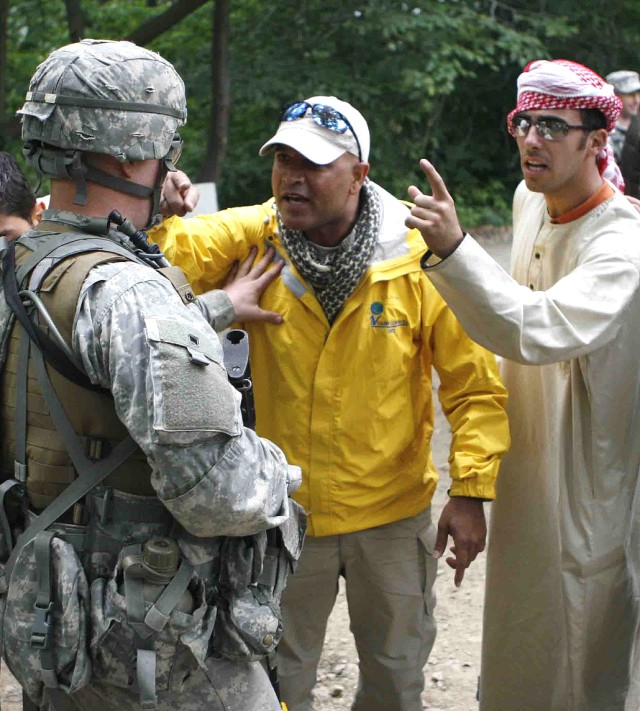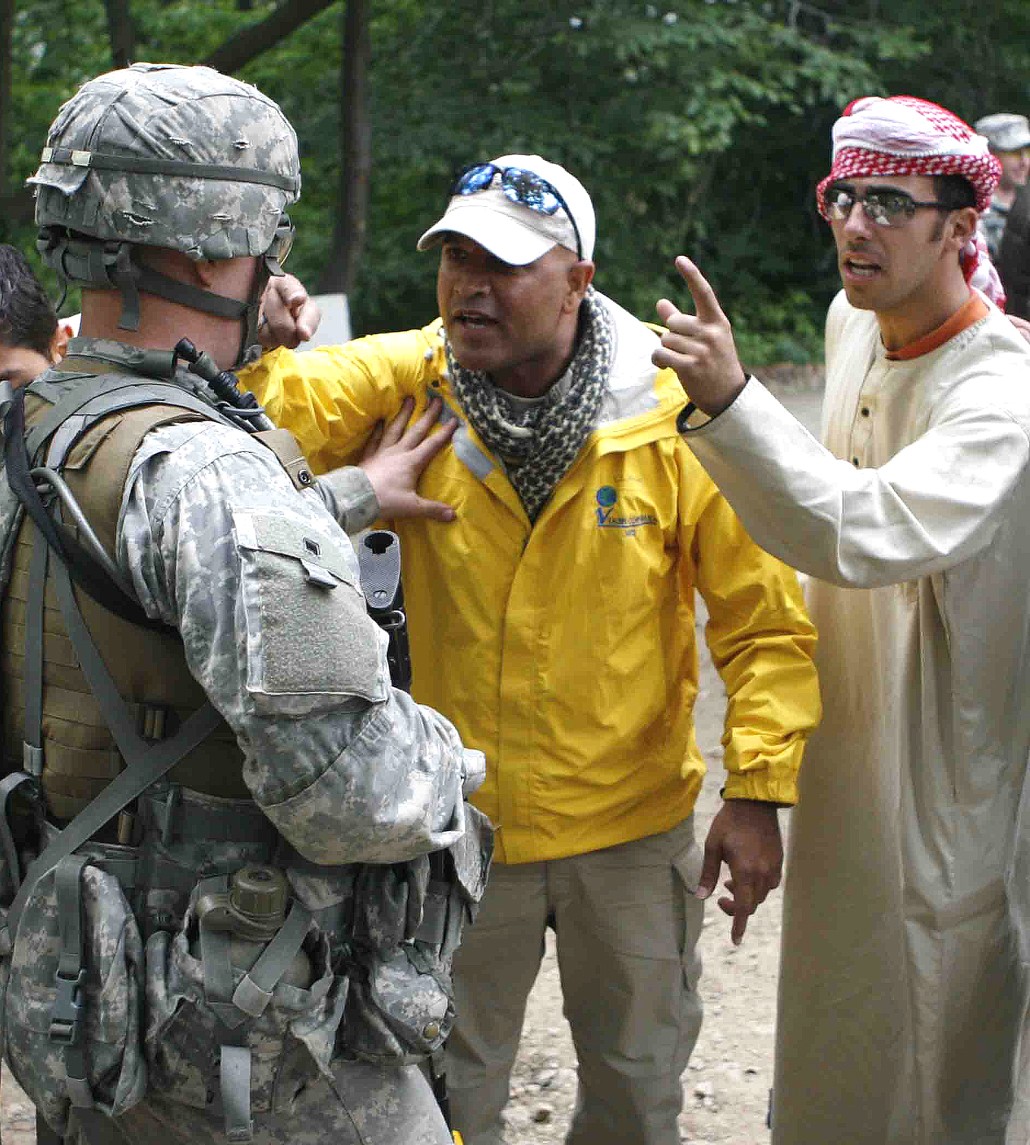WEST POINT, N.Y. (June 17, 2010) -- Realism is an essential part of combat training that future military leaders need to be effective on the battlefield, which is why for the entire block of Cadet Leadership Development Training, the faces of friends and enemies did not belong to Soldiers from another unit but to actual Iraqi nationals.
Role players are essential in replicating the conditions of combat for cadet training, Col. Stephen Michael, CLDT commander, said. With the right people to play the parts, the training more closely resembles the experiences of new lieutenants deployed overseas.
"I think it helps cadets put a human face and picture (on Iraqi society) and gives them perspective," Michael said. "These people are not a whole lot different from us. The culture (and) language might be a bit different, but fundamentally they're just like us. They want what's best for their Family."
About 30 role players, hired through a private contracting firm, populated the CLDT training areas and served as village elders and members of the community.
Alaa Aljanabi, the senior role player onsite, acted as an Iraqi double agent during CLDT.
In real life, he is a former Iraqi Republican Guardsman who left the country in 1991 following the invasion of Kuwait.
He has worked as a role player and interpreter for the American military since November 2003.
"We teach them (the cadets) about the culture, the way they search (and) talk, especially with women," Aljanabi said. "That's what we're responsible (for) teaching them if they go overseas."
Some role players have never been a part of training like this and others have done this for many years, Michael said. Like Aljanabi, some of the role players worked as interpreters in Iraq alongside American Soldiers and their allies. Using his firsthand experience, Aljanabi taught the cadets the importance of knowing Arabic phrases as well as why a female Soldier should not search an Iraqi male.
"What you can't replicate is the language and the culture," Michael said. "We can give them a look, which is pretty important, but it's not like talking to an Iraqi speaking in the same dialect."
Throughout the training, the role players stayed in character. They did not speak English unless they were interpreters working with the unit.
For the most part, the cadets were left to wrestle with the same issue deployed Soldiers have dealt with-losing bits and pieces of dialogue in translation.
Firstie Kyle Mahder was a member of a security platoon during the latter part of CLDT. When the platoon walked into a "village" during an urban operations exercise, it seemed like half the battle was interacting with the locals.
"The first time we came in here, it was confusing because they're all welcoming us and trying to get to know us," Mahder, from Wethersfield, Conn., said. "I thought that was pretty realistic. They never break character, ever."
Mahder and the other cadets had to stay focused and in control of their situations in the midst of demonstrations, riots and negotiations with sheiks to avoid becoming overwhelmed. Moreover, their training was outcome-based-if they had a good or bad day with the villagers, they knew it was because of what happened when they last met.
"I know some of the guys who were nicer to villagers-they would bring over tea to them (the cadets)," Mahder said. "Whatever we choose to do, we can choose to screw this up really badly. It's pretty much on us how easy or hard this goes."
Based upon the feedback Michael received from Aljanabi and others in the field, the role players embraced their parts to the fullest throughout CLDT.
They understood the importance of staying in character-they have been working to prepare the Army's future leaders for their lives on the battlefield.
"Most of the cadets I have talked to said this was some of the best training they have had since they have been at West Point," Michael said. "The main focus on the training (has been) taking leaders, putting them into tough and demanding positions and forcing them to lead under stressful conditions."


Social Sharing